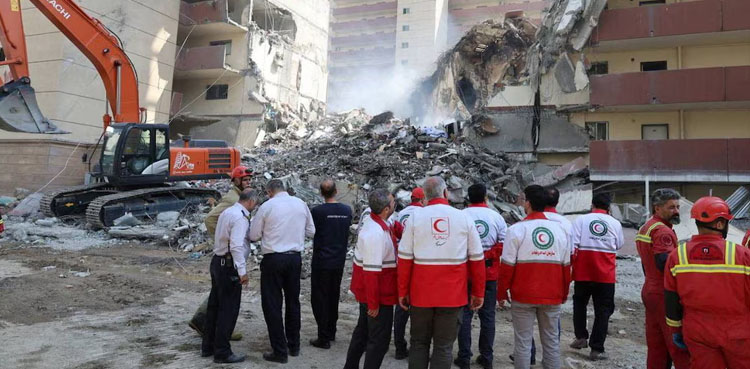As tensions simmer over Israel’s attack on Iran, a chilling question echoes: Is the West laying the groundwork for another Iraq-style intervention? The parallels are unnerving, amplified by a persistent pattern of Western double standards that undermines trust and fuels the very instability it claims to combat.
The Blueprint of Hypocrisy
Western policy towards Iran operates on a foundation of stark contradictions:
Selective Outrage & Demonization:
The relentless focus on Iran’s nuclear ambitions (while downplaying Israel’s undeclared arsenal) mirrors the pre-Iraq “WMD hysteria.” Declassified documents (like the 2003 UK “Chilcot Report”) later proved intelligence was “presented with a certainty that was not justified.” Today, Iran’s breaches of the JCPOA, while serious, followed the US’s unilateral withdrawal in 2018 (Brookings Institution analysis), a treaty violation ignored by its architects.
The US/Europe condemned Iran’s ballistic missile program while supplying billions in advanced weaponry to many other states fueling regional arms races.
“Maximum Pressure” & Collective Punishment:
The devastating US sanctions regime, reinstated after the JCPOA collapse, explicitly aimed to cripple Iran’s economy and cause popular unrest to force political change. Human Rights Watch (HRW) and the UN Special Rapporteur repeatedly documented how these sanctions severely restricted access to essential medicines, medical equipment, and food, violating international humanitarian law. A 2019 report in The Lancet quantified excess deaths due to sanctions-related medicine shortages.
This “collective punishment” strategy, inflicting immense suffering on ordinary Iranians, starkly contrasts with Western condemnations of human rights abuses by the Iranian government. It prioritizes geopolitical pressure over the basic rights of civilians.
-
Covert Aggression & Reframing Blowback:
The West condemns Iran’s support for regional militias (like Hezbollah or the Houthis), framing it as pure destabilization. Yet, it overlooks its own history of direct interventions (Iraq, Afghanistan) and covert actions (acknowledged US cyberattacks like Stuxnet, assassinations like Soleimani) that fuel Iran’s siege mentality and justify its “resistance” narrative to domestic audiences. Seymour Hersh’s reporting (contested but detailed) on US involvement in the Nord Stream pipeline sabotage further highlights covert actions with destabilizing potential.
Actions the West labels as “terrorism” or “malign influence” when conducted by adversaries are often reframed as “covert ops,” “deterrence,” or “support for freedom” when conducted by the West or its allies.
-
Ignoring Root Causes & Undermining Reform:
Western policy often strengthens hardliners in Tehran. The JCPOA offered an off-ramp, but its collapse empowered radicals. Sanctions devastate the middle class and civil society – the very forces pushing for internal reform. Former Iranian Foreign Minister Javad Zarif consistently argued that US pressure undermined moderates.
While rhetorically supporting the Iranian people’s aspirations, Western actions (sanctions, threats) primarily harm those people and solidify the grip of the most repressive factions, making internal evolution harder.
Why the “Next Iraq” Fear is Real
The Iraq invasion was sold on lies (WMDs) and promises of liberation that descended into catastrophic chaos. Today:
-
Intelligence Obfuscation: Ambiguity persists around Iran’s nuclear “breakout” timeline, ripe for manipulation.
-
Regime Change Rhetoric: Figures like John Bolton have openly advocated for it. While official policy denies it, the “maximum pressure” logic points towards collapse as a goal.
-
Military Buildup: Persistent US military presence in the Gulf and occasional surges raise alarm.
-
Disregard for Consequences: The Iraq debacle demonstrated a profound failure to plan for the aftermath. There’s little evidence similar adventurism towards Iran would be better considered.
The Path Away from Catastrophe
Iran is not Iraq. It’s larger, more populous, more militarily capable, and deeply integrated into regional conflicts. An Iraq-style invasion would be orders of magnitude more disastrous. Yet, the risk of catastrophic escalation – whether through miscalculation, covert war spiraling, or deliberate choice – remains high due to the toxic mix of Iranian regional activities and Western hypocrisy-driven policy.
The alternative demands:
-
Return to Real Diplomacy: Revive the JCPOA or a credible successor through good-faith negotiations, acknowledging mutual violations.
-
End Collective Punishment: Sanctions must be lifted or surgically targeted, exempting essential humanitarian goods, as international law demands.
-
Address Regional Concerns Holistically: Engage Iran and its rivals in dialogues addressing security fears, rather than fueling an arms race.
-
Consistency & Humility: Apply human rights critiques universally, acknowledge past destructive interventions, and abandon the counterproductive fantasy that crushing ordinary Iranians will magically produce a friendly regime.
The road to another Iraq is paved with hypocrisy – condemning the symptoms of instability while ignoring the disease (regional tensions, historical grievances, and the West’s own role). Demonization, sanctions that starve civilians, and covert warfare create a self-fulfilling prophecy of conflict. The question isn’t just if Iran could become the next Iraq, but whether Western powers possess the self-awareness and political will to break the cycle of intervention and hypocrisy that makes such a nightmare increasingly plausible. The ghosts of Baghdad demand we learn their lessons, before Tehran becomes their next haunting ground.
The answer to “Is Iran going to become the next Iraq?” lies not in Tehran’s actions alone, but crucially in the choices made in Washington, London, Paris, and Brussels. Will they choose history’s bitter repetition, or finally embrace a path of consistent principle and genuine diplomacy? The stakes couldn’t be higher.
Disclaimer: The views expressed here are solely the author’s and do not necessarily reflect the opinions and beliefs of ARYNews or its management.


Leave a Comment